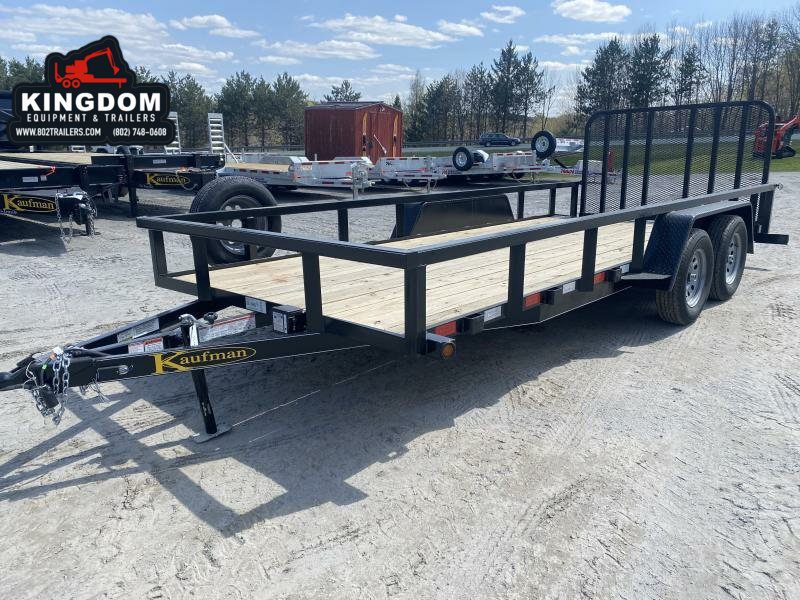Tips For Hauling Heavy Equipment
Trailers On the Move
Mastering the Art of Hauling Heavy Equipment with Expert Tips

Whether you're a construction professional, landscaper, or DIY enthusiast, hauling heavy equipment is a task that requires precision, safety, and the right equipment. As a trailer and equipment retailer, we understand the importance of securely transporting your valuable machinery. In this blog post, we'll provide valuable tips to ensure a smooth and safe experience when hauling heavy equipment.
-
Choose the Right Trailer: Selecting the appropriate trailer for hauling heavy equipment is the foundation of a successful transport. Flatbed trailers or equipment trailers with sturdy construction and sufficient load capacity are ideal for this purpose. Ensure the trailer is equipped with the necessary features, such as ramps and tie-down points, to facilitate easy loading and secure transportation.
-
Verify Weight Capacity: Before loading heavy equipment onto a trailer, it's crucial to verify the weight capacity of both the trailer and your towing vehicle. Exceeding weight limits can compromise safety and lead to accidents. Be aware of the combined weight of the equipment and trailer, and ensure it falls within the specified capacity of your towing setup.
-
Distribute Weight Evenly: Proper weight distribution is essential to maintain stability during transportation. Distribute the weight of the heavy equipment evenly on the trailer to prevent uneven loading and potential trailer sway. Pay attention to the manufacturer's guidelines for weight distribution and load positioning.
-
Secure Your Load: Invest in high-quality straps, chains, or binders to secure your heavy equipment firmly to the trailer. Utilize multiple tie-down points to ensure a secure connection. Regularly check the tension of the straps during transit to prevent any shifting or loosening of the load.
-
Use the Right Loading Equipment: Loading heavy equipment onto a trailer requires the right tools and equipment. Consider using ramps or a loading dock to facilitate a smooth and controlled loading process. Ensure the ramps are sturdy, properly aligned, and capable of handling the weight and dimensions of your equipment.
-
Check Trailer Brakes and Lights: Safety should always be a top priority when hauling heavy equipment. Regularly inspect the trailer brakes to ensure they are in proper working condition. Additionally, check that all lights, including brake lights and turn signals, are functional. Adequate visibility and signaling contribute to safe travels on the road.
-
Plan Your Route: Before hitting the road, plan your route carefully. Consider factors such as road conditions, weight restrictions, and the presence of low bridges or narrow passages. Choose routes that are suitable for the size and weight of your heavy equipment, and be aware of any potential obstacles or challenges along the way.
-
Secure Required Permits: Depending on the size and weight of the equipment, you may need special permits for transportation. Research and obtain any necessary permits well in advance to avoid delays or legal issues during your journey.
-
Perform Regular Inspections: Conduct pre-trip and post-trip inspections of both the trailer and your towing vehicle. Check for any signs of wear, damage, or loose components. Address any issues promptly to ensure the reliability and safety of your hauling equipment.
-
Consider Professional Hauling Services: If hauling heavy equipment is a frequent part of your business, or if the equipment is exceptionally large or specialized, consider hiring professional hauling services. Experienced professionals have the expertise and equipment to ensure a smooth and secure transport, reducing the risk of damage or accidents.
Hauling heavy equipment requires careful planning, attention to detail, and the right equipment. By choosing the appropriate trailer, verifying weight capacity, securing your load effectively, and following safety guidelines, you can ensure a successful and incident-free transport of your valuable heavy machinery. Implement these tips, and you'll be on the road to safe and efficient hauling for all your equipment needs.

